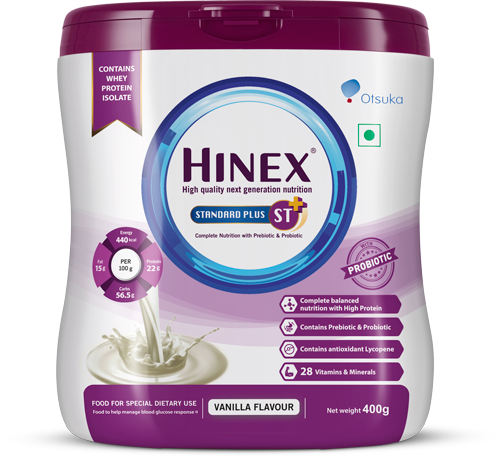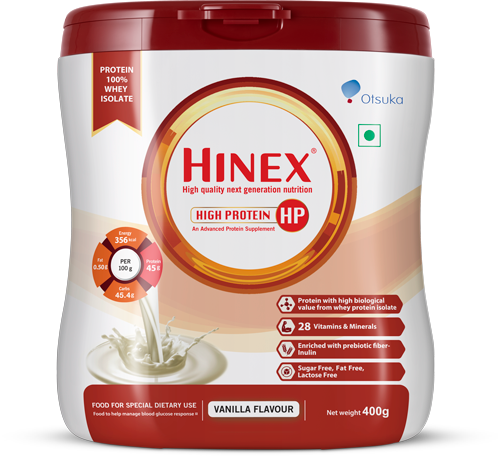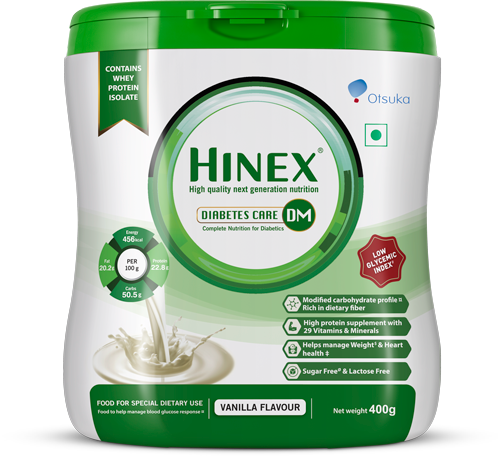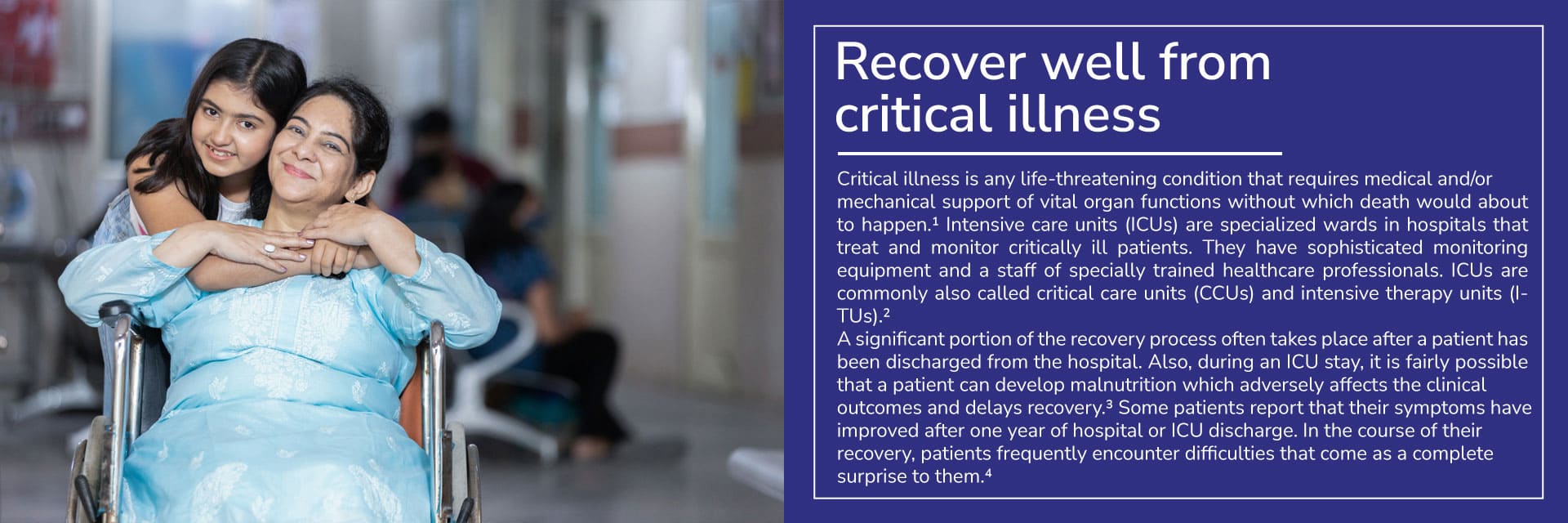
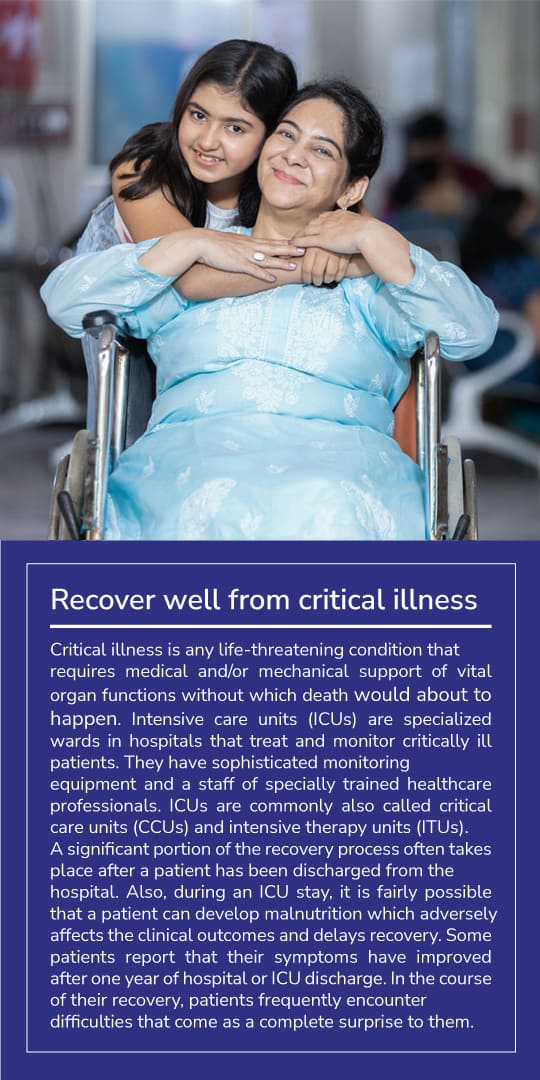
Post-discharge the patients may face following issues:

Weakness and stiffness

Extreme exhaustion (fatigue) and lack of energy

Appetite loss and weight loss

Sleep problems

Depression, anxiety, or post-traumatic stress disorder (PTSD)

Mental ability issues, such as forgetfulness and unclear thinking1
These issues can last for several months. If they persist, one might have to seek medical attention. Rehabilitation, or ongoing support and treatment, may be necessary for some individuals to recover.
Nutrition in ICU patients
Malnutrition is common in ICU patients throughout the world and tends to be an under-recognised and under-treated problem. A malnourished person in ICU may have to face an increased stay in the hospital, increased incidence of complications, and increased risk of death. The aim of nutritional support is to prevent and treat both macro- and micronutrient deficiencies during the course of recovery from critical or ICU illness.5
Recovery from critical illness is difficult. Could more protein help?
Researchers think that the massive muscle wasting (loss of muscle mass and strength) occurs during critical illness deserves much of the blame for making recovery difficult. “The first thing we can do when anything bad happens is to stop making muscle,” says a reputed medical expert. Not only that, the body also breaks down existing muscle through a process called catabolism. During muscle catabolism, proteins stored in muscle tissue are broken down into smaller molecules called amino acids and energy is released. That breakdown happens quickly. Muscle wasting (loss of muscle mass and strength) in a critically ill is up to 2% per day and this may further delay patient recovery and rehabilitation.
Adding more protein to the diet can help minimize muscle loss in patients recovering from critical illness. Dietary guidelines recommend that a healthy adult should consume around 0.8 g of protein per kilogram of body weight each day. Daily amounts of 1.0-1.2 g of protein/kg body weight have been suggested for healthy older persons by several expert groups. For critically ill patients, higher protein intake i.e. 1.2–2.0 g/kg day is recommended by the American Society of Parenteral and Enteral Nutrition (A.S.P.E.N.). Many experts also advocate for amounts at the high end of that range, depending on a person’s age and other factors.
The final word
The heterogeneity of patients admitted to the ICU is very high. Therefore, one particular value of protein intake cannot work for all patients. Every critically ill patient staying for more than 48 hours in the ICU should be considered at risk for malnutrition. Critical illness is associated with loss of muscle mass and muscle strength to even up to 2% per day (this can be up to 1 kg for a person who weighs 50 kg). Protein intake through diet or preferably oral nutrition supplements can promote regain of muscle mass and strength in critically ill patients and can aid in recovery from ICU illness.
References
1. Critical Illness. Available at: https://www.sciencedirect.com/topics/nursing-and-health-professions/critical-illness; accessed on Nov 15, 2022.
2. Intensive care. Available at: https://www.nhs.uk/conditions/intensive-care/#:~:text=Intensive%20care%20is%20needed%20if,to%20breathe%20on%20their%20own.; accessed on Nov 15, 2022.
3. Journal of the Academy of Nutrition and Dietetics. 2013 Sep 1;113(9):1219-37.
4. BMJ. 1999 Aug 14; 319(7207): 427–429.
5. Nutrition in ICU. Available at: https://resources.wfsahq.org/atotw/nutrition-in-icu/; accessed on Nov 15, 2022.
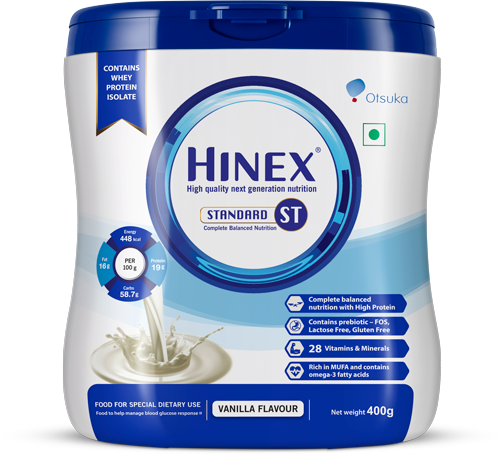
 Buy Now
Buy Now Buy Now
Buy Now